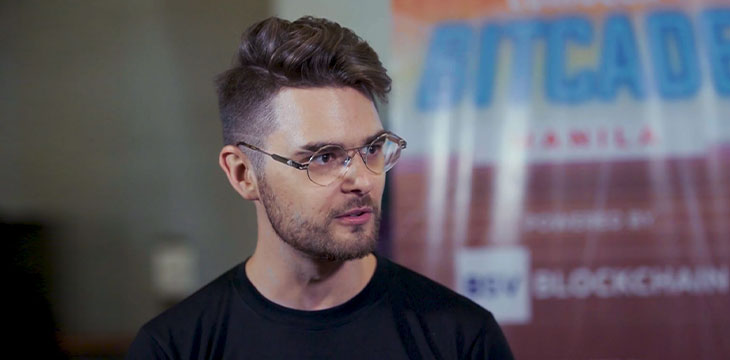|
Getting your Trinity Audio player ready...
|
The Filipinos’ enthusiasm to try new things and passion for gaming are on a whole new level—these characteristics that are often overlooked but could potentially transform the Philippines into a blockchain hub, and the Philippine Blockchain Week (PBW) served as a testament to this.
Two years prior to the historical PBW event, millions of Filipinos faced lockdowns due to the COVID-19 pandemic, while the country’s unemployment rate skyrocketed to 17.6% at the height of the health crisis in April 2020 before plummeting to 5% in September 2022, thanks to the government’s effort to reopen borders and the approved resumption of in-person business activity.
While the global pandemic was seen as a dark period for the Filipino community, it was at that time that the tech scene shone, with emerging technologies garnering massive attention from different demographics.
From trading digital currencies to non-fungible tokens (NFTs) and Play-to-earn (P2E) games, Filipinos were not one to miss out on trends happening on the other side of the world, and using this as an advantage to help them ride out the pandemic.
P2E games like Axie Infinity, CryptoFights, and My DeFi Pet became household names during those challenging times and have introduced the Philippines to blockchain.
Speaking with CoinGeek Backstage on the sidelines of the PBW, President of Blockchain for Gala Games Jason Brink said Filipinos’ passion for these games has restored the original use of blockchain—providing solutions to real-world problems and promoting inclusivity.
“In the United States, for example, people primarily get into blockchain because of fintech, and if you get into blockchain because of fintech, you kind of self-selecting a very narrow group of people who are ‘investor-type’ people and who are looking at this more from technical or fundamental analysis,” Brink said, noting that this is not what blockchain is all about.
“But here in the Philippines, because people are so passionate about gaming and have got into it for other reasons, it opens up an entirely new spectrum of activities that I personally find extremely compelling,” he pointed out.
Currently, Brink, along with a team of experts from the Web2 industry, is using blockchain through his platform Gala to transform the fundamental concept of ownership in the gaming industry and take it into other branches of entertainment, such as music or films.
But Brink was not the only high-level attendee who noticed the Philippines’ strong gaming market. 1Inch Network Backend Team Lead Nikita Koslov said the majority of PBW participants are into gaming and have a high understanding of blockchain technology.
While Koslov is positive that the Philippines’ gaming market will flourish more following the PBW, he hopes that the Filipino community will also consider hopping into and getting to know more about decentralized finance (DeFi) and how it differs from centralized finance (CeFi).
Koslov said while there is strong competition between the two, DeFi offers more security and transparency, which 1Inch is looking to showcase as it works on raising awareness.
Education before mass adoption
Filipinos may have displayed their deep understanding and knowledge during the PBW in Marriott Grand Ballroom in Pasay City, but social media influencer Agon Hare stressed that now is not the perfect time to rally the local community into adopting these technologies, particularly the concept of a virtual world, or the metaverse.
Hare, the man behind Project Nightfall, said the metaverse community is currently exclusive to experts and individuals with thorough knowledge of the space, who will serve as critical players in educating the masses on the metaverse and debunking misinformation.
“We need regular people who right now think that metaverse, Web3, crypto, is like this impossible thing to understand. We need them to be brought together and introduced to the space,” he said, noting that this serves as primary groundwork for adopting emerging technologies and the metaverse nationwide.
Hare added that it is vital to work on simplifying the space to help encourage more people to adopt emerging technologies.
Acknowledging his capacity as a social media influencer, Hare established Project Nightfall Philanthropy, a project that took over a year to develop with an aim to help people in need worldwide.
Not to confuse it with Project Nightfall, a platform generating valuable content, Project Nightfall Philanthropy is an initiative that runs campaigns to support the vulnerable or victims of catastrophes. While the latest platform is still in the works, Hare revealed to CoinGeek Backstage that his team plans to build its headquarters in the metaverse and use blockchain for a secure record-keeping of transactions. In this way, data integrity is built.
Watch: Blockchain will fuel the next generation

 02-18-2026
02-18-2026 




